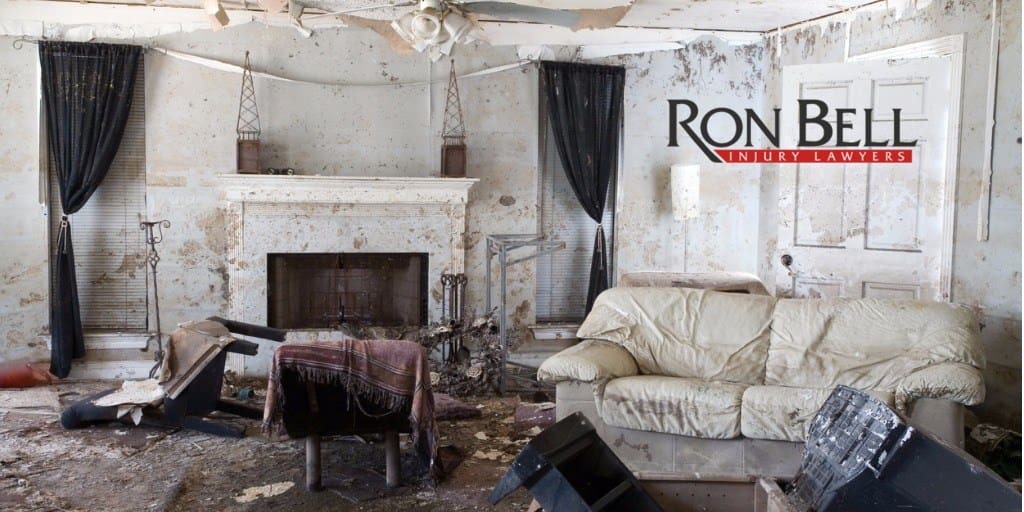
Can Your Insurance Company Deny Your Claim After a Natural Disaster?
September 29, 2017
Hurricanes Irma and Harvey have caused billions of dollars in property damage, and many people are finding themselves facing denial of coverage by their insurance companies.
“Unfortunately, standard homeowners’ and renters’ insurance policies often cover wind damage, but not groundwater flooding. That requires separate coverage from the National Flood Insurance Program or a private insurance company,” reported USA Today in the aftermath.
NerdWallet, a financial blog, also warned ahead of the hurricanes many people were woefully underinsured or would find it hard to get coverage from an insurance company in a short time-frame.“Insurance for hurricane damage can involve more than one insurance policy. Waiting periods often make it tough to buy certain coverages as a storm is approaching. Other policies are more flexible and could be available depending on how close the storm is,” they said.
While the information was initially for hurricane victims, the warning is the same for New Mexicans when it comes to having flood insurance, windstorm insurance, homeowners insurance, and auto insurance ahead of a disaster. “The best time to acquaint yourself with the terms of your insurance policies is not in the aftermath of a severe event but rather before it occurs,” said the Chicago Tribune’s Jill Schlesinger in her Jill on Money column.
Additionally, picking up after a natural disaster’s isn’t as we expect it to be.“The TV commercials make it look so easy: You experience a disaster and, like magic, your insurance company swoops in and solves all your problems,” US News and World Report said. “Unfortunately, say consumer advocates, it rarely works that way in real life. Instead, if a disaster such as a fire, hurricane, earthquake or hailstorm damages your home, it’s important to advocate for yourself.”
So shortly after a disaster, it’s easy to take the wrong steps that will ultimately allow the insurance company to either deny your claim or give a low-offer that doesn’t cover the necessary damages and repairs.
Reasons You Can Be Denied
- Lack of documented evidence.
- Lack of proof of possessions covered in the policy.
- Damage or loss isn’t covered by the policy.
- Repairs after a disaster for a home not meeting building codes.
“In some cases, complying with the code may require a change in design or building materials and may cost more. Generally, homeowners insurance policies won’t pay for these extra costs, but insurance companies offer an endorsement that pays a specified amount toward such changes,” said the Insurance Information Institute.
After a Disaster
- Contact the Insurance Company Immediately. “Report the claim as quickly as possible — insurance companies respond on a first come, first served basis. Once you have reported the claim, be sure to get your claim number and write it down,” said Schlesinger.
- Find Out From the Insurance Company the Process: The Insurance Information Institute recommends finding out “whether the damage is covered under the terms of your policy, how long you have to file a claim, whether your claim exceeds your deductible (the amount of loss you agree to pay before insurance kicks in), how long it will take to process the claim [and] whether you’ll need estimates for repairs.”
- Contact an Attorney for a Free Consultation. The insurance policy process can be long and stressful. Consider an experienced lawyer to represent you.
- Make Temporary Repairs to Protect From Further Damage. However, be careful of the cost. III says, “Remember that payments for temporary repairs are part of the total settlement. So if you pay a contractor a large sum for a temporary repair job, you may not have enough money for permanent repairs.”
- Keep Receipts and Prepare for the Adjuster’s Visit. Have an inventory of damaged or destroyed items, photographic or video evidence, structural damage on your property, bids by contractors, etc. Do not throw anything damaged away.
A Settlement Offer is Not Final
“Remember that all settlement offers from insurance companies can be negotiated, so don’t go nuts when you first review the adjuster’s written assessment of the damage, and refrain from cashing or depositing the insurance company’s check until you review the full report and agree with all items and costs,” said Schlesinger.
An experienced property damage lawyer will also be a strong advocate to be sure that the Insurance Company arrives at the appropriate amounts based on the insurance policy.
For homeowners without insurance or the underinsured, there are other options. The Federal Emergency Management Agency (FEMA) provides grants or low-interest to cover other expenses after a disaster. They can be reached at disasterassistance.gov
For More Information About How to File a Claim
